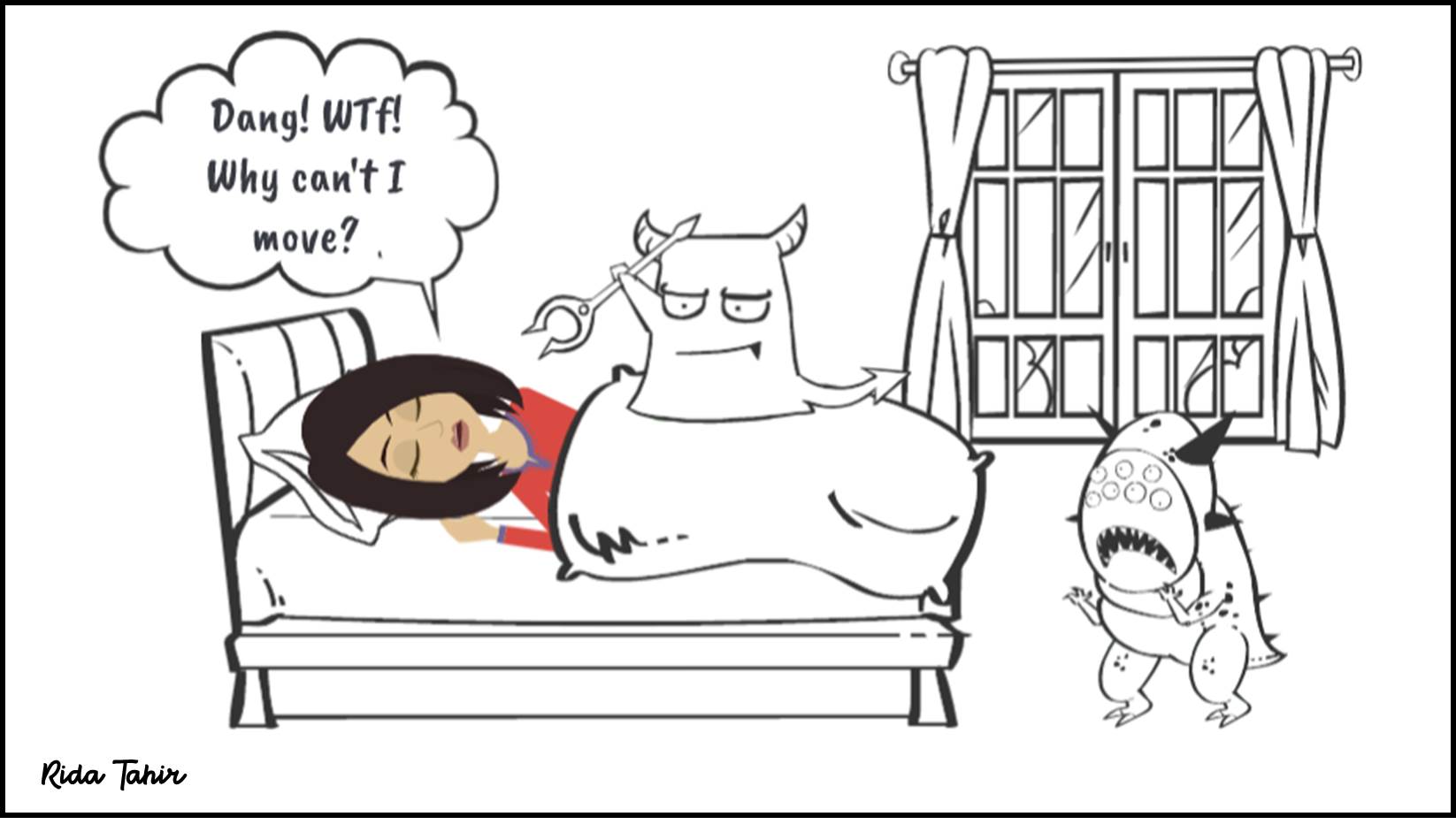Sleep Paralysis: To Fear or Not to Fear?
Written by Ammarah Shahid on Sep 24, 2020 (3 minute read)

Almost every one experiences Sleep Paralysis at some point in their lives. It is true that it has a very high tendency to scare an individual and shake them to an extreme. Although Sleep Paralysis is scary, it is harmless in most cases. Unfortunately, we have so many wrong assumptions and misconceptions related to sleep paralysis, which only makes it scarier than it already is.
In Sleep Paralysis, people cannot move or speak as they are waking up or falling asleep. They feel like they are conscious but struggle to move, speak, or open their eyes and might feel like someone is pushing or pulling them down. Some people also feel the presence of some unknown or invisible entity in the room at the time of sleep paralysis attack, while many people report feeling pressure on their chest and throat, like they are choking. Some people even report seeing an evil entity like an scary, ugly, monstrous demon sitting on their chest trying to suffocate them to death. But these are hallucinations and have absolutely nothing to do with jinns, satan, ghosts or evil spirits.
What makes Sleep Paralysis more interesting than scary is the different types of hallucinations that a person can experience during Sleep Paralysis. These types are:
1. Intruder hallucinations: In this type of hallucination, people sense the presence of a dangerous or evil entity in the room.
2. Chest pressure hallucinations (incubus hallucinations): In this type, people feel they are being suffocated or choked to death by some human or non-human entity. This hallucination commonly occurs with intruder hallucinations.
3. Vestibular-motor hallucinations: This type of hallucination results in feelings of movement or out-of-body experiences i.e. people feel like their soul is rising or flying out of their body.
Sleep Paralysis occurs when a person moves between the stages of wakefulness and sleep, but research is inconclusive as to what exactly causes this terrifying state of consciousness. Some studies have shown that one possible reason is activation of your brain while your body is in sleep mode. Other than family history, Sleep Paralysis has also been linked with jet lag, disruptive sleep patterns, insomnia, anxiety, PTSD (post-traumatic stress disorder) or Panic disorder, narcolepsy, too little or too much of sleep, changing sleep schedule, sleeping on the back, use of certain medications, stress and substance abuse.
If you are suffering from recurrent episodes of Sleep paralysis and want to prevent future episodes, follow the guidelines below:
Even though Sleep Paralysis is a common symptom of serious psychiatric conditions like Narcolepsy, most people who experience Sleep Paralysis have no underlying psychiatric conditions. In most cases, there is no need to seek any medical or psychological treatment but if you experience recurrent episodes of Sleep Paralysis, be sure to visit your doctor.
Sources:
https://www.webmd.com/sleep-disorders/sleep-paralysis
https://www.nhs.uk/conditions/sleep-paralysis/
About the Author
Ammarah Batool works as a Behavior Analyst with Islington Council London for primary school sector. She is certified in 6 different areas of Abnormal Human psychology from University of Oxford England. Her areas of expertise are Family Therapy, Counselling, Psychology of addiction, Child Psychology, Work field Psychology and Child Behaviour Management. Click here to read more about her.